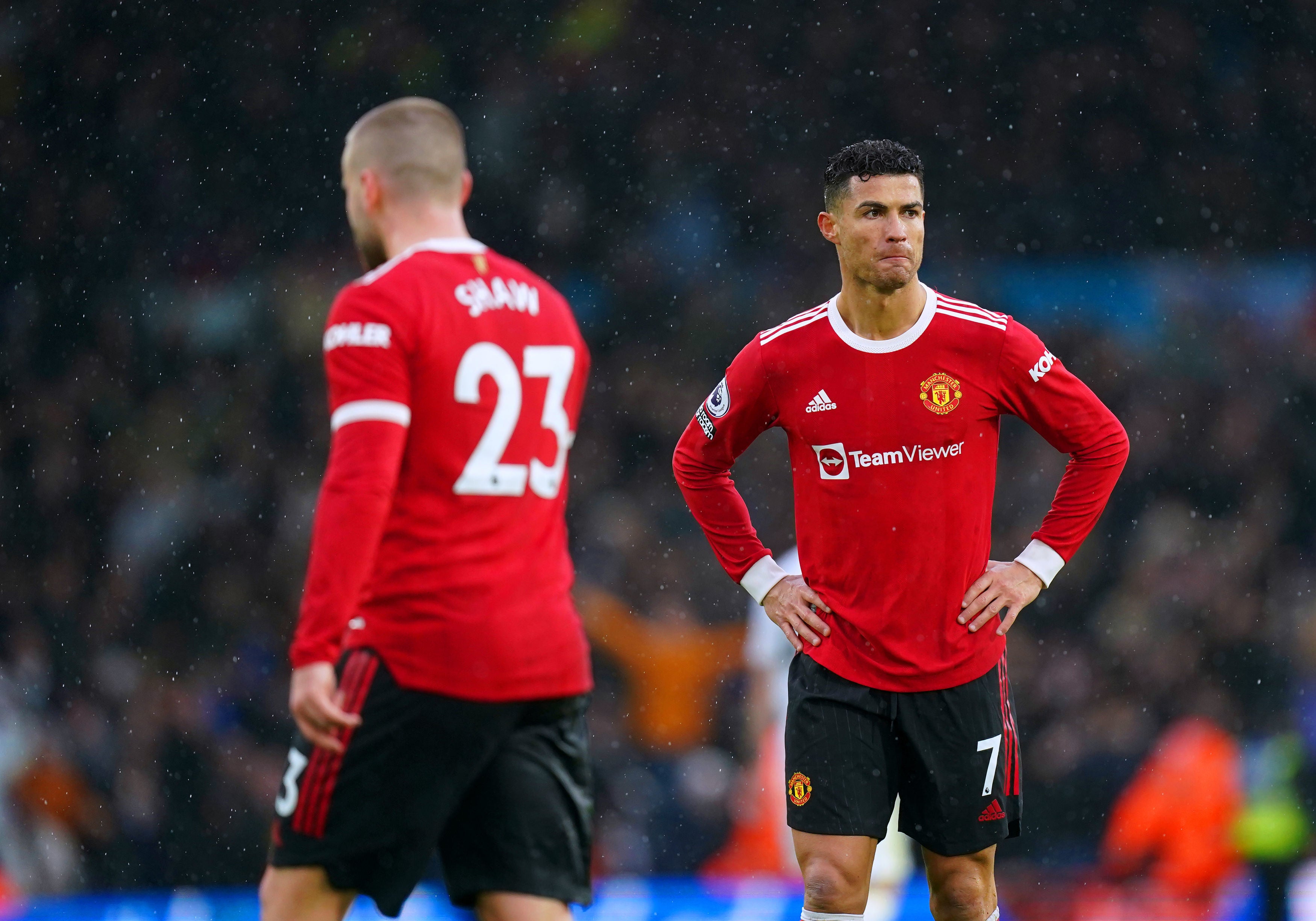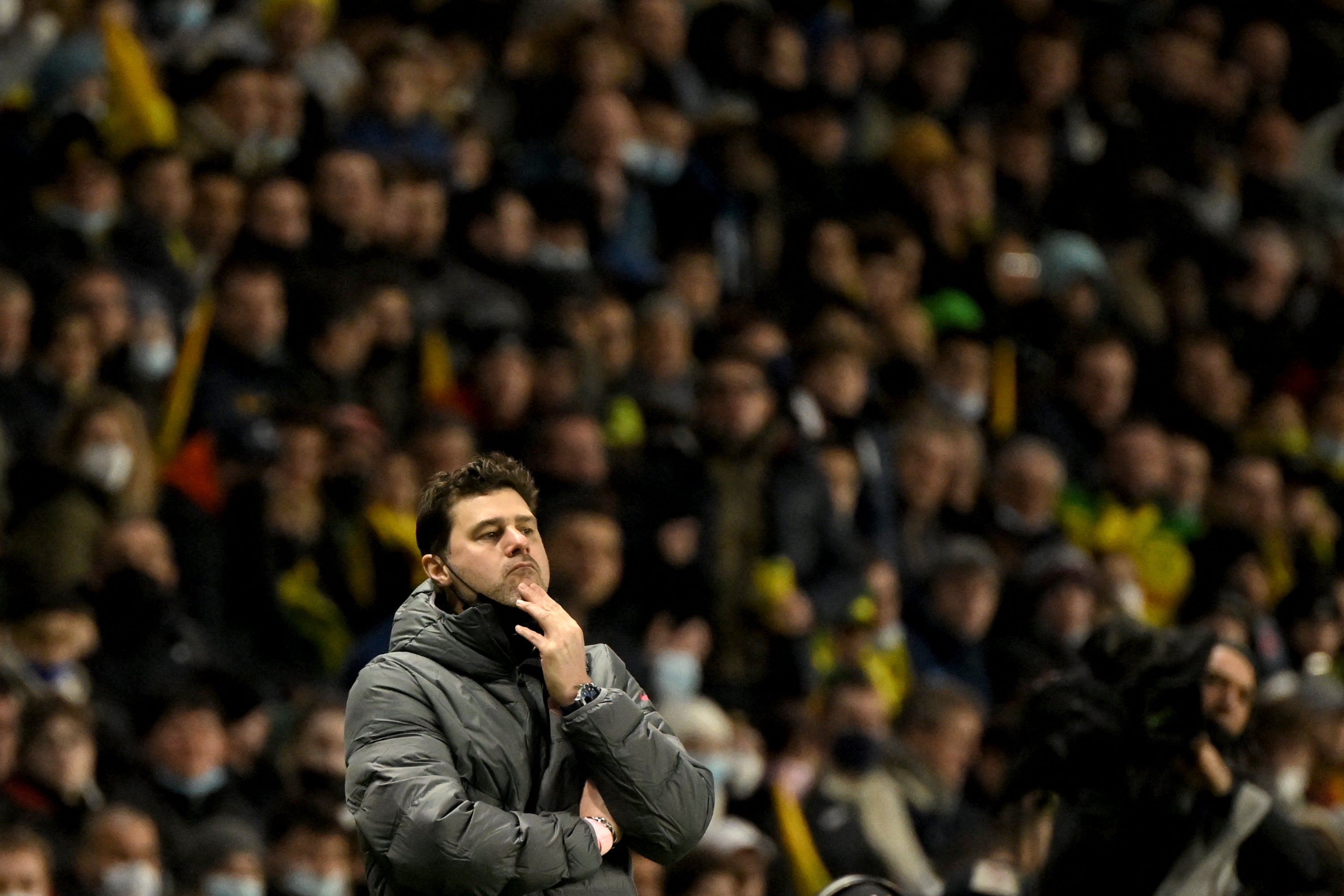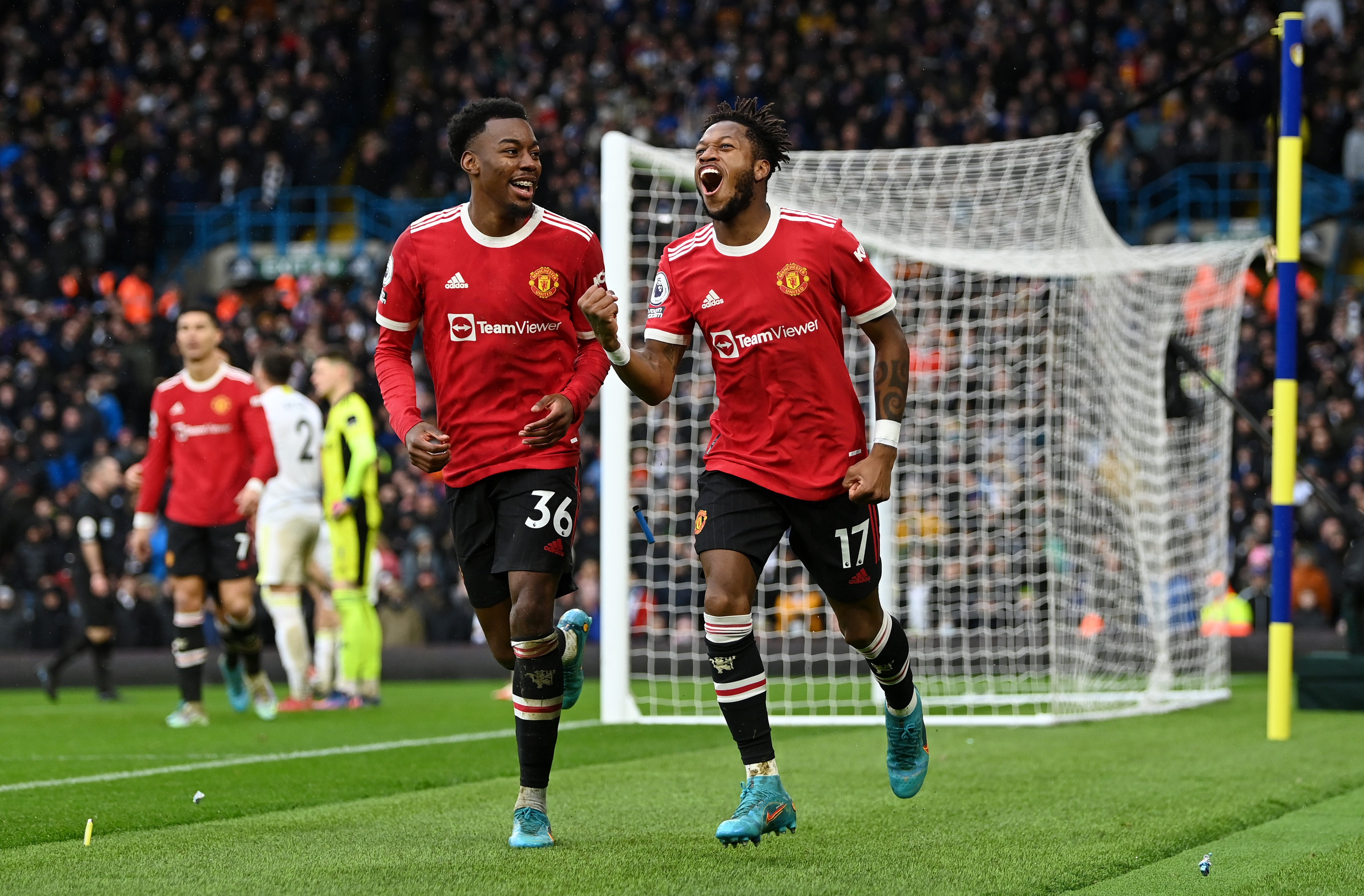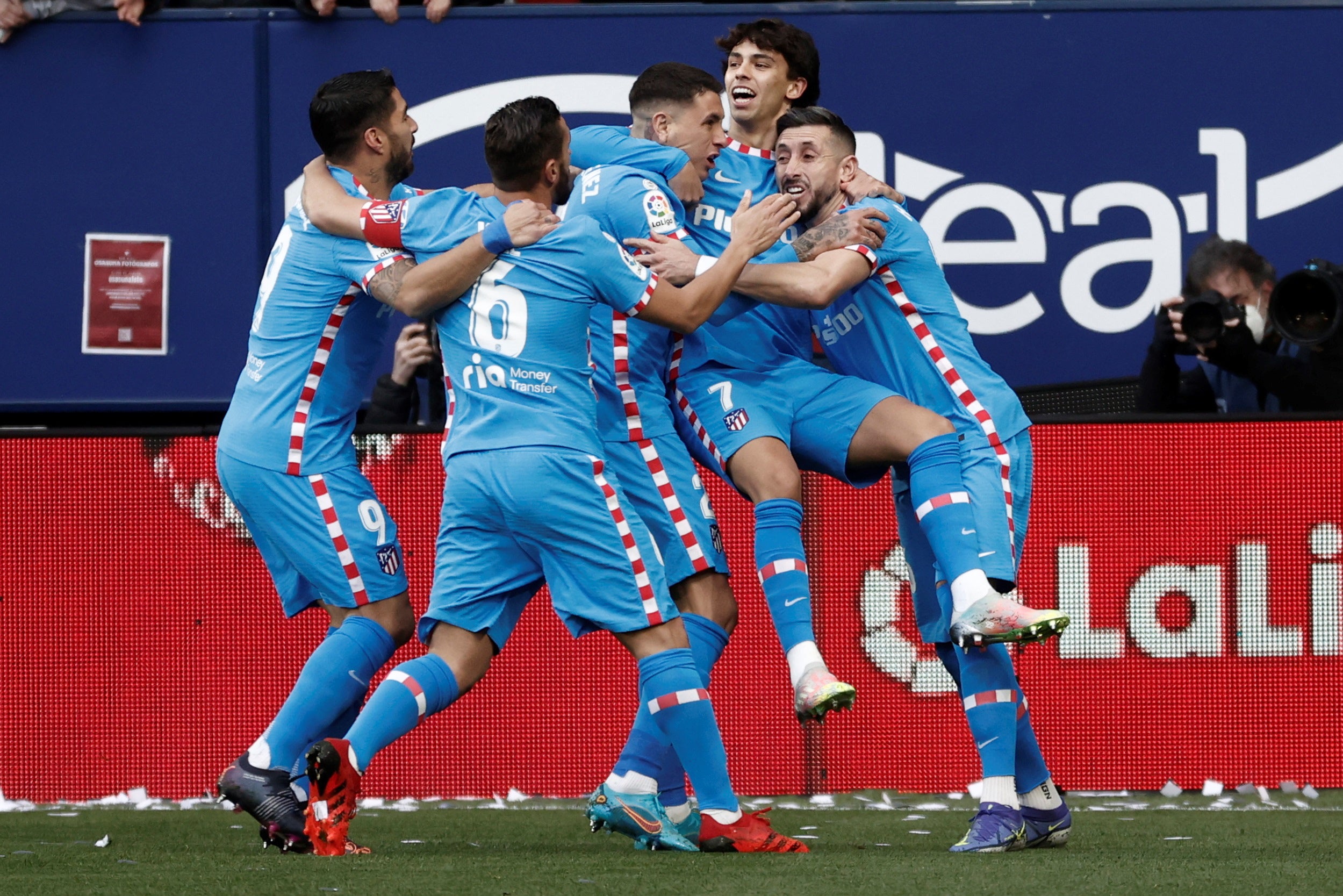
If some figures at Manchester United had their way, Diego Simeone would be overseeing the English team on Wednesday, rather than Atletico Madrid. The Old Trafford hierarchy have made repeated overtures in the last decade, and even wondered if he’d be available as late as November last year. Simeone has never been interested due to his emotional investment in Atletico, although it’s fair to wonder whether he has any regrets right now.
The Madrid club’s own troubles have added to all the doubts over whether his defensive football could ever be right for a club like United, but there’s no doubt over his force of personality. This is a quality that Old Trafford certainly needs.
Many figures around the club describe a situation of “chaos”, at all levels, that could yet get worse in the summer.
It has fostered a debate over whether this is United’s worst season since the relegation of 1973-74, but the fact that’s a discussion says enough. What is more relevant is that years of dysfunction have culminated in a dismal set of circumstances.
A club hero has been sacked amid team collapse. Half the squad are questioning their futures, with many others questioning whether most of them are even good enough. The chief executive has finally stepped down and cannot even gloss over the fact he’s been a failure. The club’s great young hope has effectively been suspended, pending allegations of rape, sexual assault and threats to kill. That obviously puts football concerns in their correct context, but adds to a dreary atmosphere, as the club faces up to a decisive month on the pitch.
The next few weeks will offer very different challenges to hard-fought wins over Brighton and last Sunday at Leeds United. There are trips to Manchester City and Liverpool, either side of a home match against Tottenham Hotspur, where it is known Antonio Conte is determined to show United they made a mistake not appointing him.
This spell could yet decide whether they get back into the Champions League, as they also face two huge games against Atletico in the same competition.
And yet it is the Champions League itself that could save this season. That has happened to other clubs in worse situations, such as Liverpool 2005 and Chelsea 2012. Some of the United players have mentioned this .
This is the great contradiction of the competition. It’s also the chance afforded to the wealthiest of clubs. Constantly being in the Champions League gives them a chance. The trophy is only occasionally won by the best team in Europe, and it’s still just a knockout, subject to all the same nuances of luck that lesser cups are. Pep Guardiola could testify to that. A bit of individual quality can go a long way.
From the outside, a widespread perception around football is that United do have that quality. “You keep wondering,” one senior player at a rival Premier League club said, “one of these days they’re all going to turn up.”
Maybe the Champions League will offer some of those nights, in that rare way the prestige of the competition can have a rallying effect. The lights can do strange things. But United remain in a strange situation.

The view on the inside is different. A lot of figures that have arrived in the last few years have been taken aback by the chaos at the club. It is probably one of the few things Cristiano Ronaldo and Ralf Rangnick would agree on.
Some sources believe it was why Michael Carrick and Kieran McKenna were so quick to go. The squad is a “mess”, built to many different managers and ideals, governed by an indulgent culture. A core of players who were overly protected by Ole Gunnar Solskjaer, with the rest aggrieved they weren’t afforded the same chances.
A little insight is given by the attitude to “niggles”. While Jose Mourinho would expect far too much from players carrying physical issues, to the point he totally turned off those who wouldn’t go to the limit, Solskjaer was the opposite. It became an “open secret” in the dressing room that little niggles could see players miss away games they didn’t necessarily fancy. It was one of many hallmarks of a badly run club that just wasn’t performing to the limits of sporting excellence.
Rangnick initially disrupted all this with some home truths. “He bollocked them,” was one line. This led to leaks, as well some staggering complaints, like that Rangnick “shouts too much”.
Some players, more seriously, would argue that assistant Chris Armas’s drills don’t relate to match situations. There’s also the fact he lacks big-club experience, to go with the presumption that Rangnick won’t be the manager next season.
This makes any sense of authority close to impossible. The issues probably go deeper than that, though.
This United squad has very little recent experience of modern coaching, and particularly ball-oriented pressing. That isn’t something that just happens in a few sessions. It is a problem that comes when you previously appointed managers whose peaks were in 1995 and 2005, and two who were never elite at all.
Jadon Sancho and Anthony Elanga are best geared for what Rangnick wants, which explains their upturn in form. Sancho is particularly receptive to such coaching. By contrast, Rangnick had an individual session with one player, explaining what he was doing wrong and what was required. It seemed to go well, and the German reasserted some of the instructions before sending him out for a game. The player then started as if none of it had gone through.

A key issue is that it is similar with a lot of senior players. Bruno Fernandes can obviously be decisive, but he is described by one top coach as “tactically anarchic”. The playmaker is generally seen within the game, and by some teammates, as a “moments player”. It is one reason other big-six clubs passed on him. Paul Pogba is brilliant with the ball, but tunes out off it. Edinson Cavani gets it but no longer has the stamina. Ronaldo may not have the legs for pressing, not to mention the will, which opens up a lot of other questions.
The Portuguese has a core of loyalists within the club, but not as many as might be imagined. Some of them even admit they have not seen the player they expected. “It’s not 2009 any more,” has been one comment. They’ve instead seen a 37-year-old struggling to adapt to an awful lot. Ronaldo can cut a frustrated figure, and it is why many sources say there is credence to talk of tension between him and Harry Maguire.
The overall picture is that of a “difficult dressing room”. Some football figures would point to a comparison with another Chelsea team, but from 2016. Back then, their squad looked in pieces, and there were all the same discussions about a “broken club culture”. Conte then came in and immediately imposed a winning one, securing the league title within a season.
This points to why United need a transformative personality more than anything else. Erik ten Hag could well be the best coach possible, but almost everyone who knows him cautions that he requires an elite football structure around him so he can just coach. United do not currently have that. That in turn raises the question over whether they have the expertise to realise this.
The club is in an even greater state of flux than with one of its usual managerial changes, due to the departure of executive vice-chairman Ed Woodward. For all the intrigue about his future influence, sources say Woodward has not been visible since his exit – although it has admittedly been less than a month. Richard Arnold is not as entranced by the football side of the business as his predecessor, and is set to delegate much more to John Murtough and Darren Fletcher.

That could at last represent a positive step in terms of structure, but much will depend on how empowered they are and – to be blunt – how capable. On the latter, neither Murtough nor Fletcher have real experience in the most senior roles at top clubs. On the former, the big question will be how much still goes through Joel Glazer. He has had final say on all significant football decisions, with the football staff generally filtering the information up. Some former employees have been frustrated by this. They complain it slows everything down, and just isn’t how top clubs are run.
Another repeated criticism around the game is that United often look like a “business that happens to have a football team” rather than a football club doing everything that’s best for the team and the business. It can best be seen in how the club have prioritised star signings that have commercial value. City and Liverpool instead signed the right players for the team and made them into stars. The greatest lesson there is the contrast between Pogba and Mo Salah’s commercial value when they signed for United and Liverpool, respectively, and their commercial value now. United seem to have forgotten that it is successful clubs that are the most commercially attractive. At City and Liverpool, elite football expertise drives everything.
It is why the big decision of the summer is as up in the air as anything else. United do not know who they will appoint as manager. Ten Hag and Mauricio Pochettino are clearly top targets, although the latter’s transformative effect at Tottenham Hotspur would suggest he is better suited to what United need.
It’s just that not everyone in the Old Trafford hierarchy is convinced. That could be even more problematic because it will likely take real conviction to bring in Pochettino.
Paris Saint-Germain have their own plans, and eventually want to appoint Zinedine Zidane, but they are highly conscious of not being seen to be bullied. That could be sensed in their total refusal to countenance selling Kylian Mbappe to Real Madrid despite his contract running out. It is the same with Pochettino. They are prepared to hold him to his contract for another year to show they are in command.

Few expect United to “go to war” with PSG, or go all in to get the Argentine. So, if they do end up deciding on Pochettino, it is going to be a real test of the new regime’s acumen and whether they have the clout to pull it off. That’s even before you get to the possibility of competition from Real Madrid.
All of this has yet to be decided, though, because the key meetings have yet to take place. Arnold still hasn’t had a proper sit-down with Rangnick over it, despite the German’s pending move into a consultancy role.
That, in fairness, has been because the interim manager has just been so busy with the first team. It has been a huge job, involving much more base man-management than at any point in his career.
It is all why any manager needs to be entrusted to build the first team with a blank slate for two to three years, while a proper structure is also constructed. That could well involve Rangnick, maybe even as manager. Nothing has yet been ruled out.
For the moment, he is singularly concerned with trying to rescue this most dismal of seasons. It is possible the greatest of club competitions may help. Atletico may be perfect opponents, since they are currently having as bad a time as United.
That is in a Spanish league that is now much weaker in quality. The very atmosphere of the Champions League’s big nights can also have a transformative effect of its own. You only have to look at Ronaldo in the group stage, let alone Chelsea in 2012 or Liverpool in 2005, or even the Portuguese’s own history of devastating Atletico.
Ronaldo does have a psychological hold over Simeone’s side, as Rangnick hopes the Champions League changes the mindset of his own team. It can serve to focus even the most loosely understood tactical plan.
It just says much in itself this is where the club are. They’re looking to the Champions League’s history of the extraordinary, because chaos has become so ordinary at the club.

.jpg?w=600)





